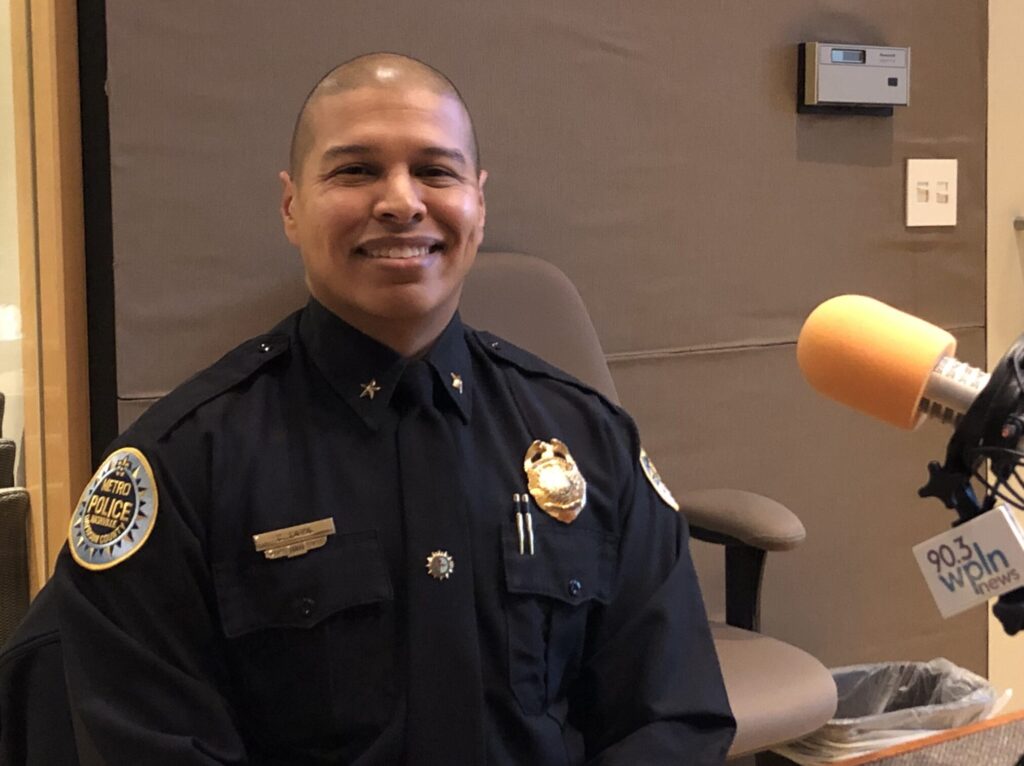
Carlos Lara’s family comes from Honduras. When he joined the Metro Nashville Police Department (MNPD) in 2008, he was one of just a few Hispanic officers. Now, as a police commander in charge of Nashville’s Southeast Precinct, he serves some of Nashville’s largest immigrant communities.
He says he’s getting lots of questions from immigrants who worry local law enforcement will collaborate with federal agents carrying out President Donald Trump’s promised “mass deportations.”
When asked about this, Lara makes it clear: the MNPD will not interfere with federal immigration enforcement.
“We respect our elected officials. We respect Trump,” he said. “He’s our elected president, you know, and he has the right and the authority to enforce immigration laws in the United States.”
However, local police officers do not carry out immigration enforcement themselves, and Lara says they won’t even ask about immigration status in their day-to-day operations.
“There’s no reason any officer should go and ask somebody at a traffic stop, ‘Are you here legally?’ ” he said. “That means nothing to us.”
More: More Nashville police trying engagement, but seeing results may take time
Before he became a precinct commander, Lara ran the department’s Office of Community Outreach, in charge of building trust with marginalized people, especially immigrants. As part of that program, officers talk with community leaders, show up at community meetings and answer questions. Lara says a big part of his job was learning about important cultural differences that came up in police work.
“Certain cultures, you know, the men don’t speak with the women. And so for me, if I’m an officer and I’m out on a call for service, the women may not speak to me,” Lara said. “So we would call a female officer and then they would be wide open to tell them whatever they need to know.”
Trust-building also involved educating immigrant communities about differences between the police in their native countries and the police here. For example, community leaders told Lara that people in Ethiopia are expected to get out of their cars during traffic stops. That means Ethiopians in the U.S. might not know to stay in their cars if pulled over.
Lara says that, during this fearful time for immigrants, the MNPD will continue to do the same trust-building work it’s done for years. He’s hoping that trust doesn’t erode, because that would make the department’s job a lot harder.
“We don’t want people to stop calling,” he said. “And that’s probably the most scary thing to me is people stop calling and they’re being victimized left and right and nobody knows.”

